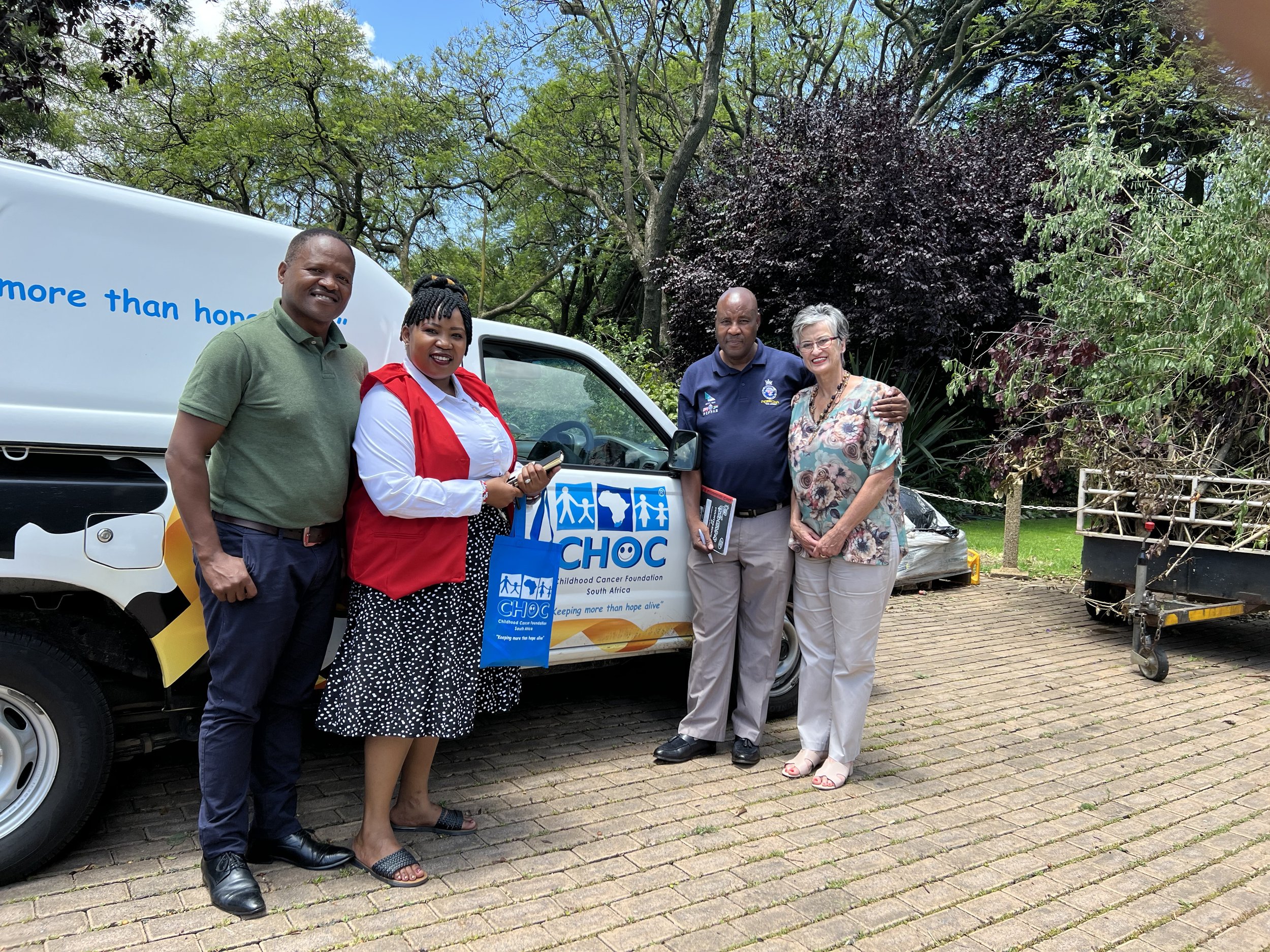CHOC Foundation: Incorporating Traditional Health Practitioners to narrow the gap
With the aim of reducing childhood cancer mortality in South Africa and enhancing access to specialized treatment, the CHOC Foundation launched a training program in 2010.
This initiative, based on research by Dr. Stellios Poyiadjis, aimed to educate healthcare professionals about the early warning signs (EWS) of childhood cancer. Shortly after its inception, it became evident that without involving all provinces in the country and engaging healthcare workers like Home-based Care Workers and Traditional Health Practitioners (THP), reaching the children they aimed to help would be challenging.
This was due to the fact that around 80% of all South Africans either use traditional medicine or a combination of Western and traditional medicine, and for most, their initial point of contact with healthcare is through Traditional Health Practitioners. Since then, CHOC has continuously collaborated with these groups. How was the implementation of this project, and what are the scopes and challenges of this initiative?
Explore all the details in this interview with Adri Ludick, Programme Development Manager of CHOC.
1. What led you to initiate this work with traditional healers and medical practitioners?
In 2010, CHOC started its training program on the Saint Siluan Early Warning Signs of childhood cancer. The project was based on research conducted by Dr. Stellios Poyiadjis to educate Healthcare Professionals on the EWS of childhood cancer.
Refer to: Stelios Poyiadjis et al. “The Saint Siluan Early Warning Signs of Cancer in Children. Impact of education in rural South Africa” Pediatr Blood Cancer 2011;56: 314-316.
The objective of the training was to equip Healthcare Professionals with knowledge about childhood cancer, its Early Warning Signs, how and where to refer potential cases. The formal training began in Gauteng (1 of the 9 provinces in SA). Through formal training, we aimed to reduce the mortality and morbidity of childhood cancer, ensuring that every child with cancer has access to specialized treatment centers, essential medicine, supportive, and palliative care. Providing knowledge (Information) and resources, we hoped to change attitudes toward the disease, believing that this change would lead to early detection and referral of potential cases.
Soon after starting the program, we realized that if we didn't involve all provinces in the country, as well as healthcare workers like the Home-based Care Workers and Traditional Health Practitioners (THP), we would not reach the children we aimed to help. Around 80% of all South Africans use traditional medicine or a combination of western and traditional medicine, and for most South Africans, their first healthcare contact is through Traditional Health Practitioners.
I was introduced to the late Phepsile Maseko – a community influencer who opened doors for us.
2. What gaps did you identify in terms of access to treatment?
The THPs acknowledge that they cannot cure childhood cancer. However, with the knowledge we provided, they are respected within their communities and have influence in referring patients to clinics.
3. How was the reception from both the healers themselves and the community to this initiative?
Phepsile introduced us to all the leaders of the different Traditional Healers Organizations in SA. We met at the Chris Hani Baragwanath Academic Hospital Hall and engaged in some heated discussions on how we could work together.
They were fearful of losing their income, concerned about stigma, and wanted to understand how the knowledge would benefit their lives and work. CHOC had to learn about their culture, greetings, and establish trust by using translators to deliver accurate messages. We learned about African time, allowed them to perform their traditional rituals before each training, and endeavored to know and respect each other.
4. What progress have you observed since its implementation? Has there been an increase in access to diagnosis and treatment for patients?
There has been progress. Some of our Social Workers report that THPs refer patients to the units. We conducted training sessions in various settings and trained THPs to train their peers using diverse methodologies. From 2010 to July 2023, we trained 5175 THPs, and we have 2 qualified CHOC Community Trainers.
We also collaborated with the National Department of Health Department for African Traditional Medicine to reach more THPs through their Provincial coordinators.
5. What are the remaining challenges or pending issues after these years of learning?
After the first year, Phepsile asked what's next – what more we could offer. We primarily focus on training on the EWS and childhood cancer, which is our core. We decided to host an open debate between Western and Traditional Medicine. The theme was "Partnerships in the Early Detection of Childhood Cancer," aiming to create awareness of the EWS of childhood cancer, thus decreasing mortality and morbidity.
We discovered a significant gap between Traditional Health Practitioners and Western medical professionals. Traditional healers have limited knowledge of medical practice, and medical professionals lack understanding of traditional health practitioners. There's mutual mistrust. However, there's a willingness on all sides to work together to benefit children with cancer.
After COVID-19, we're struggling to rebuild relationships. We included the THPs in some of our webinars, and currently, we're working on a documentary about our collaboration with them.


